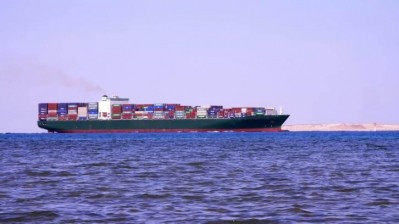Legal Brief
Navigating business risks in face of the Panama Canal drought

Most businesses are probably fed up with supply chain challenges over recent years – whether relating to the semi-conductor shortage, the implementation of Brexit, or the COVID-19 pandemic. However, in the last 12 months there has been another obstacle for businesses to handle – the worst drought in 70 years affecting in the Panama Canal.
The Panama Canal is a vital waterway connecting the Atlantic and Pacific Oceans. Approximately 5% of global maritime trade relies on the narrow passage, with cargo ships carrying goods between Europe, Asia, and the Americas.
Due to a combination of factors: from a decrease in rainwater (41% less rainfall than normal), the El Nino effect, and the fact that last year was the driest in history, the Panama Canal has been in a state of significant drought since 2023.
The drought has delayed and disrupted supply chains, affecting industries worldwide – with a particular impact on food and other consumer items being felt by UK food manufacturers. At times, the canal operators have restricted access to the canal and significantly reduced daily transits (from 36 ships to 24 a day), causing ships to queue up before they can be granted passage.
How the drought has impacted UK producers
This reduction in capacity has affected UK food manufacturers in three main ways.
1. Loss of perishable goods: Perishable goods from Peru and other South American countries, including fruit worth £18m, have been delayed or reduced due to canal restrictions.
2. Export delays: British businesses exporting goods from the US West Coast are encountering delays and increased costs. Such delays are having their greatest impact on UK food manufacturers relying on timely imports for production.
3. Reduction in available grain crops: The drought has impacted grain shipments between the United States and Asia which has, in turn, disrupted supply chains to the UK food manufacturing market.
In addition, these delays have also caused an astonishing rise in the costs of goods exported into the UK, such as Chilean wine ($206m/£164m), fruit and vegetables ($400m/£318.6m), coffee and tea ($44.5m/£34.4), Ecuadorian processed fish ($111m/£88.4), crustaceans ($71.2m/£57.4) and bananas ($44.8m/£35.7).
In addition to the day-to-day disruption to UK food manufacturing businesses, in due course such issues may well give rise to difficult legal questions and potential future disputes.
Managing your risk
A key question businesses should be asking themselves at this stage is when does the risk in their goods pass to or from them? In other words, businesses should be testing when they become responsible for the consequences of any limb of the supply chain falling down due to shipping delays. For many businesses at the bottom end of the supply chain, this can often be much earlier than they might immediately think.
It is also likely that the question of force majeure will need to be considered. Force majeure covers unforeseeable events beyond a party’s control that prevent them from fulfilling their contractual obligations. In many instances, drought conditions may well satisfy the test for force majeure and therefore could enable parties to temporarily relieve themselves of their contractual obligations.
Read your contracts carefully
However, whilst such temporary relief may be immediately welcomed, parties must tread carefully before seeking to rely on those rights. For example, most English law contracts contain carefully defined force majeure events which means that individual contracts need to be checked to ensure that they include drought conditions in the Panama Canal.
Similarly, many contracts require force majeure to be declared promptly, and in accordance with specific notice provisions which, if not complied with, can see a party lose any rights that it might otherwise have.
Finally, some force majeure provisions can give the counterparty a potential right to terminate the entire contract if the underlying conditions continue for a prolonged period.
Given this, whilst there are options that may be open to businesses to buy short term relief from difficult trading conditions and supply chain issues, they may come at a price in the long term.
It would therefore be sensible for businesses to be testing their legal position now in order to determine how they can protect their business interests and the full consequences of exercising their existing contractual rights. This will ensure that any decisions which are taken are fully and properly considered and short-term decisions which might have more damaging long term consequences avoided.

















